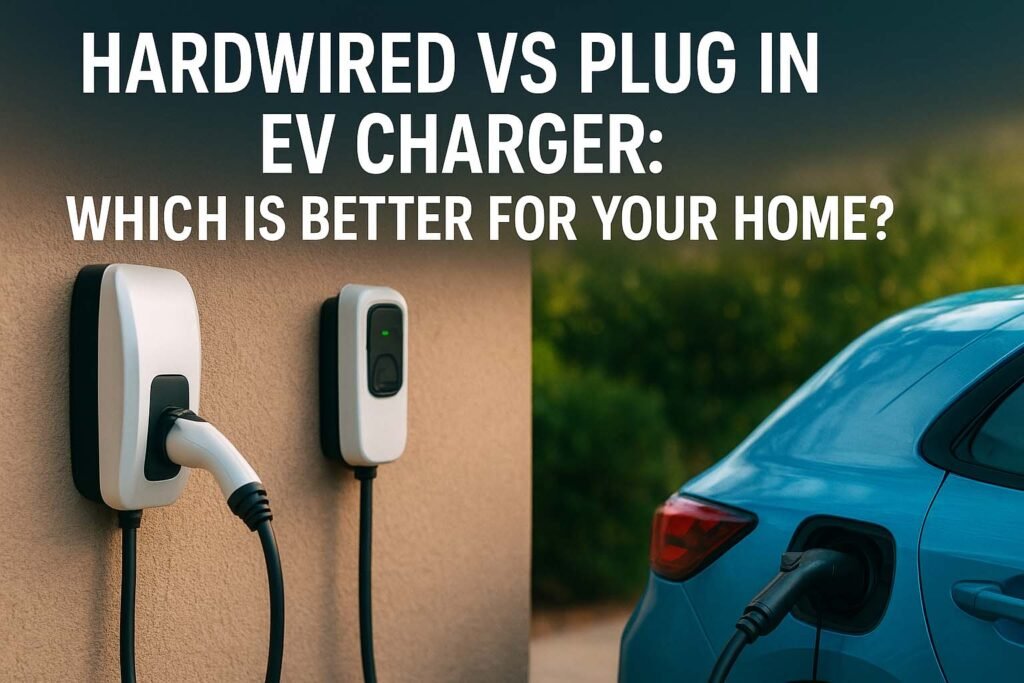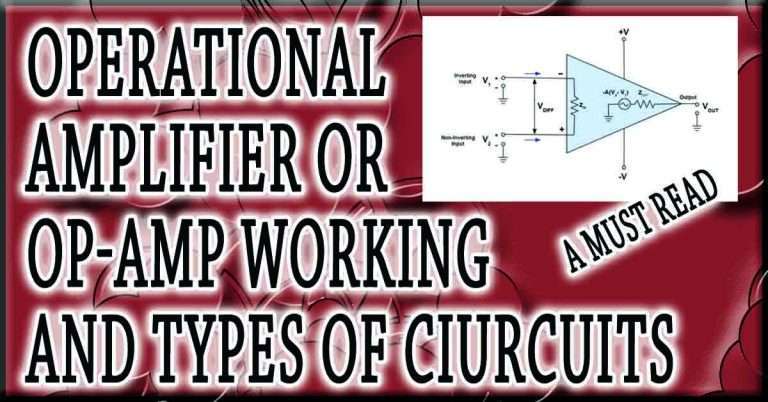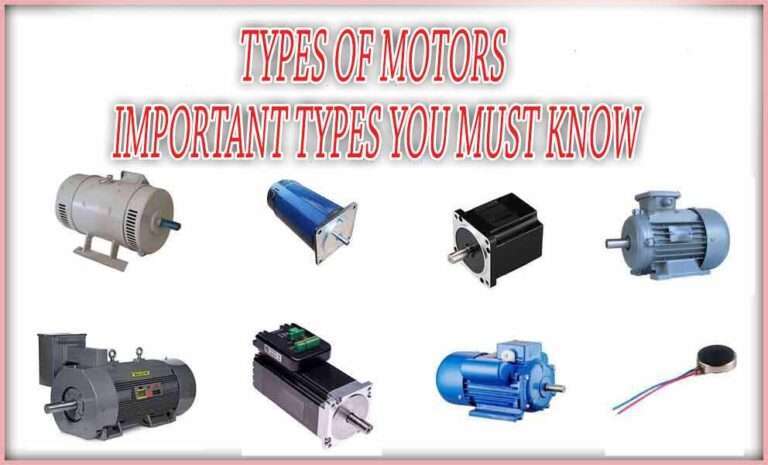Hardwired vs Plug In EV Charger: Which is Better for Your Home?
Electric vehicles are becoming more common every year. As more drivers switch to EVs, the need for reliable and fast home charging solutions is growing. When setting up a home charging station, one of the most common questions is whether to go with a hardwired EV charger or a plug in EV charger. Both options have advantages, drawbacks, and specific installation requirements. Choosing the right one depends on your budget, home setup, long-term plans, and how you use your vehicle.
Understanding the debate of hardwired vs plug in EV charger is important for homeowners who want convenience, safety, and cost-efficiency. While both deliver the same charging function, the installation method makes a big difference in flexibility and long-term usability. Many EV owners find themselves torn between these two setups, and making the wrong choice can lead to extra costs later.
Table of Contents
Table of Contents

Before diving into the details, it’s helpful to know that plug in chargers are flexible and portable, while hardwired chargers are permanent, safe, and often required for outdoor use. If you’re planning long-term EV ownership, the decision you make today can impact convenience and property value tomorrow.
Key Takeaways
- Plug in EV chargers are portable, flexible, and easier to install.
- Hardwired EV chargers are more permanent, safer outdoors, and often meet strict electrical codes.
- Your choice depends on budget, installation site, and whether you value flexibility or durability more.
Know more about Single Phase vs Three Phase EV Charger Load Calculator
Hardwired vs Plug In EV Charger: What’s the Difference?
The core difference between a hardwired EV charger and a plug in EV charger is how they are connected to your home’s electrical system. A hardwired charger is permanently connected, with wires running directly from your electrical panel to the charging unit. This eliminates the need for an outlet and makes the charger part of the house wiring. A plug in charger, on the other hand, connects to a high-powered outlet, usually a NEMA 14-50 or NEMA 6-50 outlet, similar to what electric stoves or dryers use.
Both setups typically provide Level 2 charging, which is much faster than standard Level 1 charging from a regular wall outlet. The installation cost and convenience, however, can be very different depending on which option you choose.
Hardwired EV Charger Explained
A hardwired EV charger is permanently installed by connecting it directly to your home’s electrical wiring. This means it doesn’t rely on a wall outlet. Electricians usually recommend this option for outdoor installations because it is weatherproof and more secure.
One big advantage of a hardwired charger is safety. Since it’s directly connected, there are no plugs or outlets that could get damaged over time. Many building codes also require hardwired installations for outdoor chargers. This makes them the go-to choice for homeowners planning to mount the charger on an exterior wall or in areas exposed to the elements.
However, hardwired units are not portable. If you move to a new home, you’ll either need to uninstall the system (which can be costly) or buy a new charger. Installation also costs more since an electrician must make permanent connections.
Know more about How to Calculate Load for Multiple EV Chargers in Apartment Buildings
Plug In EV Charger Explained
A plug in EV charger connects to a 240-volt outlet. These outlets are often installed in garages for appliances and are suitable for indoor charging stations. The biggest benefit of plug in chargers is flexibility. You can unplug the charger, take it with you when moving, or even carry it along on road trips where you expect to find compatible outlets.
Another major advantage is cost. Plug in chargers are usually cheaper to install since they only need an outlet. If you already have a 240V outlet in your garage, installation may be as simple as mounting the charger and plugging it in.
That said, plug in chargers are less secure outdoors. Exposure to rain, snow, or extreme weather can damage the plug or outlet over time. For this reason, many electricians advise against using plug in units in outdoor spaces.
Comparing Hardwired vs Plug In EV Charger
To understand the hardwired vs plug in EV charger debate better, let’s compare them side by side:
| Feature | Hardwired EV Charger | Plug In EV Charger |
|---|---|---|
| Installation | Permanent connection to home wiring | Simple outlet connection |
| Cost | Higher due to electrician labor | Lower, especially if outlet exists |
| Portability | Fixed in place | Portable, easy to move |
| Outdoor Use | Safer and code-compliant | Less secure outdoors |
| Flexibility | Limited | High |
| Resale Value | Adds to property value | Easy to take when moving |
| Maintenance | Minimal, secure setup | Outlet wear and tear possible |
This table shows that both options meet the basic need of charging your EV, but your priorities will decide which fits better.
Know more about 7kW EV Charger Cost: A Detailed Guide
When to Choose a Hardwired EV Charger
You should choose a hardwired EV charger if you plan to keep your EV long-term and want a permanent solution. It is the best option for outdoor setups where weather resistance is a must. If you’re upgrading your home for future EV use, hardwired chargers can also increase resale value. They look cleaner, with no bulky plugs or cords hanging from the wall.
Hardwired chargers are also preferred for higher power needs. If you plan to install a high-capacity charger (over 40 amps), hardwiring ensures safety and compliance with electrical codes.
When to Choose a Plug In EV Charger
A plug in EV charger is perfect if you want flexibility and lower costs. It’s the go-to choice for renters or homeowners who may move in the future. If you have a garage with a 240V outlet, installation is quick and affordable.
Plug in chargers are also great for drivers who travel and want to bring their charging unit along. For example, RV parks and some public charging spots have NEMA 14-50 outlets, which are compatible with many plug in EV chargers.
However, if your charger will be outdoors or permanently mounted, a plug in unit may not be the best choice in the long run.
Hardwired vs Plug In EV Charger: Cost Considerations
Cost is one of the biggest deciding factors. Installing a hardwired charger can cost anywhere between $700 and $2,000 depending on labor, distance from the panel, and electrical upgrades required. Plug in chargers are cheaper, usually ranging from $300 to $800 if you already have a 240V outlet.
If you need a new outlet installed, costs can rise, but they are still typically less than a hardwired setup. The ongoing cost difference is minimal, as both use the same amount of electricity, but maintenance and flexibility give plug in chargers a slight financial edge for many homeowners.
Know more about Portable EV Charger Level 2: A Comprehensive Guide
Safety and Compliance Factors
When it comes to hardwired vs plug in EV charger, safety plays a major role. Electrical codes in some areas mandate hardwiring for outdoor chargers to prevent hazards from exposure to weather. Even indoors, a hardwired connection reduces risks associated with loose outlets or overheating plugs.
Plug in chargers, while safe when used correctly, require extra caution. The outlet and plug must be rated for continuous load, and regular checks are recommended to ensure there is no overheating or wear.
Which Charger Is Better for Your Home?
The answer depends on your needs. If you want a clean, safe, and permanent installation that adds long-term value to your home, a hardwired EV charger is better. If you prefer flexibility, lower installation costs, and portability, then a plug in EV charger is the smarter option.
It’s also worth considering how often you plan to change vehicles or move homes. A plug in unit keeps your options open, while a hardwired charger is a long-term investment.
Know more about Best Portable EV Charger: A Complete Guide
Final Thoughts on Hardwired vs Plug In EV Charger
The choice of hardwired vs plug in EV charger is less about charging performance and more about lifestyle. Both provide reliable Level 2 charging, but their usability differs depending on your goals. If you own your home, plan to stay long-term, and want the most professional look, go hardwired. If you rent, move often, or simply want the freedom to take your charger with you, plug in is the way to go.
Follow Us on Social:
Subscribe our Newsletter on Electrical Insights for latest updates from Electrical Engineering Hub
#HardwiredVsPlugInEVCharger, #EVCharger, #HomeEVCharging, #ElectricVehicleCharger, #EVChargerInstallation, #PlugInEVCharger, #HardwiredEVCharger, #EVChargerComparison, #HomeChargingSolutions, #EVChargerGuide, #BestEVCharger, #EVChargingForHome, #EVChargerSetup, #SustainableDriving, #EVChargerOptions



Please write more about the challenges you mentioned — curious for solutions.